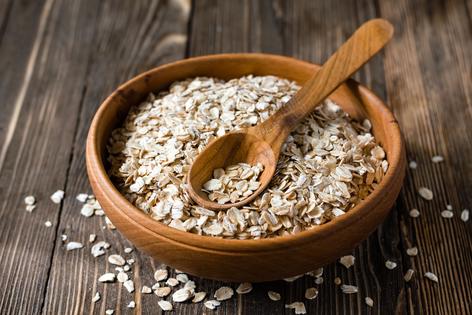Environmental Nutrition: Supplementing energy
Who couldn't use a little more energy? A number of supplements and natural remedies promise to lift fatigue and boost energy, but before you heed their siren call -- and open your wallet -- here's what you need to know.
Caffeine
At moderate doses, caffeine stimulates your central nervous system, making you feel more alert, awake and energized. No wonder more than 80 percent of Americans are coffee drinkers! For most healthy adults, up to 400 milligrams (mg) of caffeine per day -- the amount in a Venti brewed coffee at Starbucks -- doesn't present a health risk. At higher doses, caffeine can produce symptoms of anxiety, nervousness and jitteriness. Most caffeine pills contain 100 mg to 200 mg each, and while caffeine content in energy drinks and "shots" varies, some approach or slightly exceed 400 mg.
Coenzyme Q10 (CoQ10)
CoQ10 plays a vital role in energy metabolism in our cells. Your body makes CoQ10, and you get some from food. While CoQ10 supplements may benefit those who have certain hereditary disorders, there's no evidence that it boosts energy in healthy individuals. Several studies have found that CoQ10 supplements don't significantly improve exercise performance in healthy men.
Creatine
Your body produces creatine, which helps supply energy to your cells. You also get small amounts if you eat meat or other animal foods. Creatine supplements can provide more energy to muscles, boosting sports performance, and it is being investigated as a treatment for several neurological diseases, but don't consider it a go-to for boosting overall energy levels.
B Vitamins
Vitamin B12 and the other B vitamins play essential roles in the complex biochemical machinery that releases energy from the food you eat. If you are B-deficient, it can indeed affect your energy levels, but if you take in more B vitamins from supplements or energy drinks than your body can use, you won't become "super energized." Your body will simply excrete the excess.
Energy for life
Food is fuel for our bodies, so what we eat affects how energetic we feel throughout the day. Build meals and snacks from a mix of high-quality carbohydrates for energy with some lean protein and healthy fat for staying power. Slow-digesting carbohydrates ("slow carbs") like whole grains, whole fruits, vegetables or beans offer a steady supply of energy, while "fast carbs" like sugar and refined flour provide a temporary lift -- followed by a crash. Eating every three to five hours also supports steady energy.
(Environmental Nutrition is the award-winning independent newsletter written by nutrition experts dedicated to providing readers up-to-date, accurate information about health and nutrition in clear, concise English. For more information, visit www.environmentalnutrition.com.)







